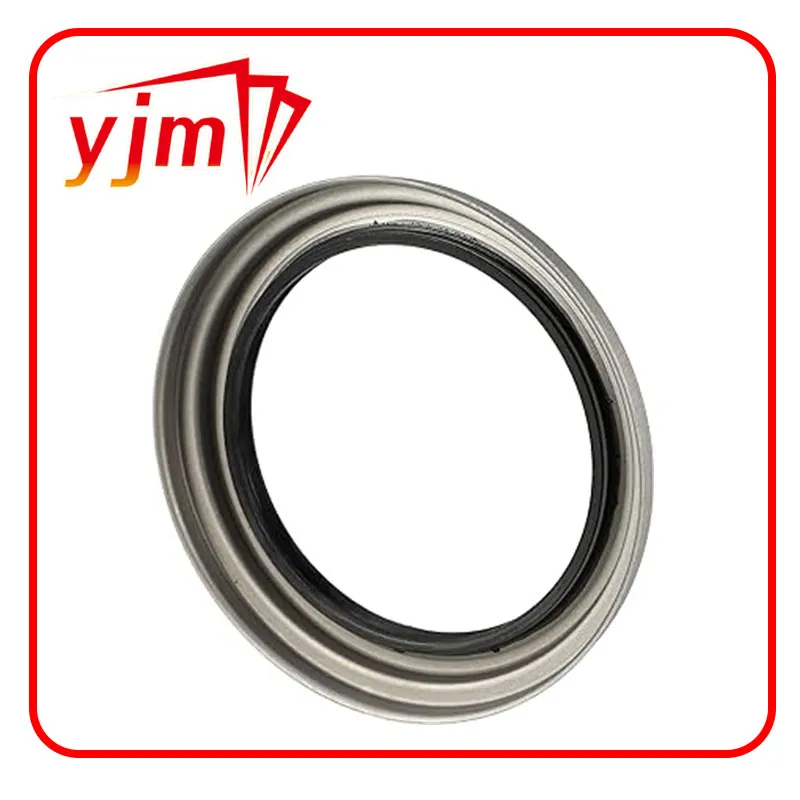Flange Oil Seals Essential Components for Reliable Sealing Solutions in Machinery
Understanding Flange Oil Seals Importance, Types, and Applications
Flange oil seals are critical components used in various mechanical systems to prevent the leakage of lubricants and fluids, ensuring efficient operation and longevity of machinery. These seals are often found in engines, pumps, gearboxes, and other rotating equipment where shafts and housings meet. In this article, we will delve into the working principles, types, benefits, and applications of flange oil seals.
What Are Flange Oil Seals?
Flange oil seals, also known as flange seals or flange-mounted seals, consist of a rubber or elastomeric ring that is positioned between two surfaces to create a tight barrier against oil and other fluids. The flange provides a flat mounting surface, allowing for easy installation and ensuring consistent sealing pressure around the perimeter. This design minimizes the risk of misalignment during assembly, which can lead to leaks.
Working Principle
The primary function of a flange oil seal is to maintain the integrity of the lubricant within a system while keeping contaminants, such as dirt and dust, out. The seal achieves this by utilizing a dynamic lip that exerts pressure against the shaft or housing. As the shaft rotates, the seal's lip flexes slightly to accommodate movement while still preventing fluid from escaping. This design allows for effective sealing even under varying operating conditions, such as changes in speed or temperature.
Types of Flange Oil Seals
Flange oil seals come in various designs and materials, each suited for specific applications. Some common types include
1. Single Lip Seals These seals feature a single lip that contacts the shaft surface. They are typically used in low-pressure applications where leakage control is essential.
2. Double Lip Seals With two sealing lips, these seals offer enhanced protection against contaminants and are suitable for systems exposed to dirt or other abrasive materials.
3. Spring-Loaded Seals These incorporate a spring mechanism that applies consistent pressure on the sealing lip, making them ideal for high-speed applications or those involving considerable temperature fluctuations.
4. Material Variants Flange oil seals can be made from various materials, including nitrile rubber (NBR), fluorocarbon rubber (FKM), and silicone. The choice of material depends on the specific application requirements, such as temperature resistance, chemical compatibility, and durability.
Benefits of Flange Oil Seals
flange oil seal

The benefits of using flange oil seals in mechanical systems are numerous
- Leak Prevention They effectively prevent oil loss, reducing environmental pollution and ensuring energy efficiency.
- Contaminant Protection Flange oil seals keep dirt and other contaminants from entering the system, which helps extend the life of the machinery.
- Cost-Effective Maintenance By minimizing leaks and protecting components, these seals contribute to reduced maintenance costs and prolong the intervals between oil changes.
- Versatile Application Flange oil seals can be used in a wide range of industries, including automotive, aerospace, marine, and industrial machinery, making them a versatile choice for engineers.
Applications
Flange oil seals are found in diverse applications across various industries
- Automotive They are crucial in engines, transmissions, and differentials to manage lubricant retention.
- Industrial Equipment In hydraulic systems, pumps, and compressors, flange oil seals ensure efficient operation and protect against leaks.
- Aerospace In aircraft and spacecraft, these seals manage lubrication in engines and gearboxes, maintaining performance under extreme conditions.
- Marine Flange oil seals are vital in preventing leaks in marine engines and other equipment subjected to harsh environmental conditions.
Conclusion
Flange oil seals play a pivotal role in ensuring the efficiency and longevity of numerous mechanical systems across various industries. By understanding their function, types, benefits, and applications, engineers and technicians can make informed decisions when selecting seals for their specific needs. Investing in high-quality flange oil seals not only enhances operational efficiency but also reduces maintenance costs, contributing to the reliability of the overall system.
-
Simplifying Oil Changes: A Comprehensive Guide to Oil Drain Plugs and Their Variants
News Aug.04,2025
-
Mastering Oil Drain Maintenance: Solutions for Stripped, Worn, and Upgraded Oil Plugs
News Aug.04,2025
-
Fixing Oil Pan Plug Issues: Leaks, Stripped Nuts, and the Right Replacement Solutions
News Aug.04,2025
-
Everything You Need to Know About Oil Drain Plugs: Sizes, Fixes, and Upgrades
News Aug.04,2025
-
Choosing the Right Oil Drain Plug: A Guide to Sizes, Materials, and Drain Innovations
News Aug.04,2025
-
A Complete Guide to Automotive Drain Plugs: Types, Problems, and Innovative Solutions
News Aug.04,2025
-
The Ultimate Guide to Car Repair Kits: Tools and Essentials Every Driver Should Own
News Aug.01,2025
Products categories















